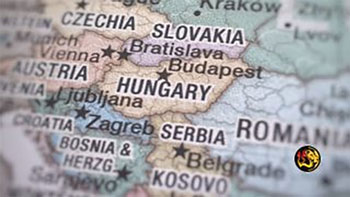 JERUSALEM/BUDAPEST (Worthy News)— Hungary’s recently elected President, Tamás Sulyok, has urged his nation to “respectfully and honestly” remember the victims of the Holocaust, also known as the Shoah, in which some 600,000 Hungarian Jews died.
JERUSALEM/BUDAPEST (Worthy News)— Hungary’s recently elected President, Tamás Sulyok, has urged his nation to “respectfully and honestly” remember the victims of the Holocaust, also known as the Shoah, in which some 600,000 Hungarian Jews died.
He spoke at the 80th anniversary of the tragedy, remembered in Hungary as the International Holocaust Remembrance Day, at a time of concerns about antisemitism.
Hungary, which was a close ally of Nazi Germany, should show “reflections on our past duties with an outlook on the present and the future,” he told Parliament on Tuesday.
“Taking responsibility for the past, including my personal history, I pay tribute to all victims of the Holocaust,” the president said.
Israeli President Isaac Herzog told participants at the ceremony in parliament that the crimes against Hungarian Jews stood out for having taken place so rapidly and with little resistance from the larger population.
He said he was “grateful to Hungary” for taking responsibility for the “country’s collaboration” with the Nazis in the past and for participating in international Holocaust-related organizations.
Tibor Navracsics, the public administration and regional development minister, said it was important to remember the victims of the Holocaust each year and work to make sure future generations could live in a better world.
TRAVELING EXHIBITION
At a commemoration in the town of Tapolca in western Hungary, Navracsics opened a traveling exhibition entitled Stories from a Family Album. He said that at the end of World War Two, states, including Hungary, had turned against their own citizens and taken their lives with “industrial cruelty.”
In all localities in Europe, there was a duty to mourn and remember the victims of the Holocaust, he said.
His sentiments were shared in Budapest, the capital, by Budapest Mayor Gergely Karácsony. He said the Holocaust is not the history of Jews only; “it happened to us, and we are largely responsible for it.”
He stressed it was crucial to not “stay idle when we see further discrimination, stigmatization, and hate-mongering.”
He said the history of Jews and non-Jewish Hungarians was “inseparable” and called for “taking on the necessary but trying task of reflection.”
At the commemoration, held at Budapest’s Boráros Square, a monument was unveiled to pay tribute to victims of an infamous internment camp south of Budapest.
While most Hungarian Jews perished in the war and many survivors left for Israel, the country still hosts one of the largest Jewish communities in Europe outside Russia of some 100,000 people.
















